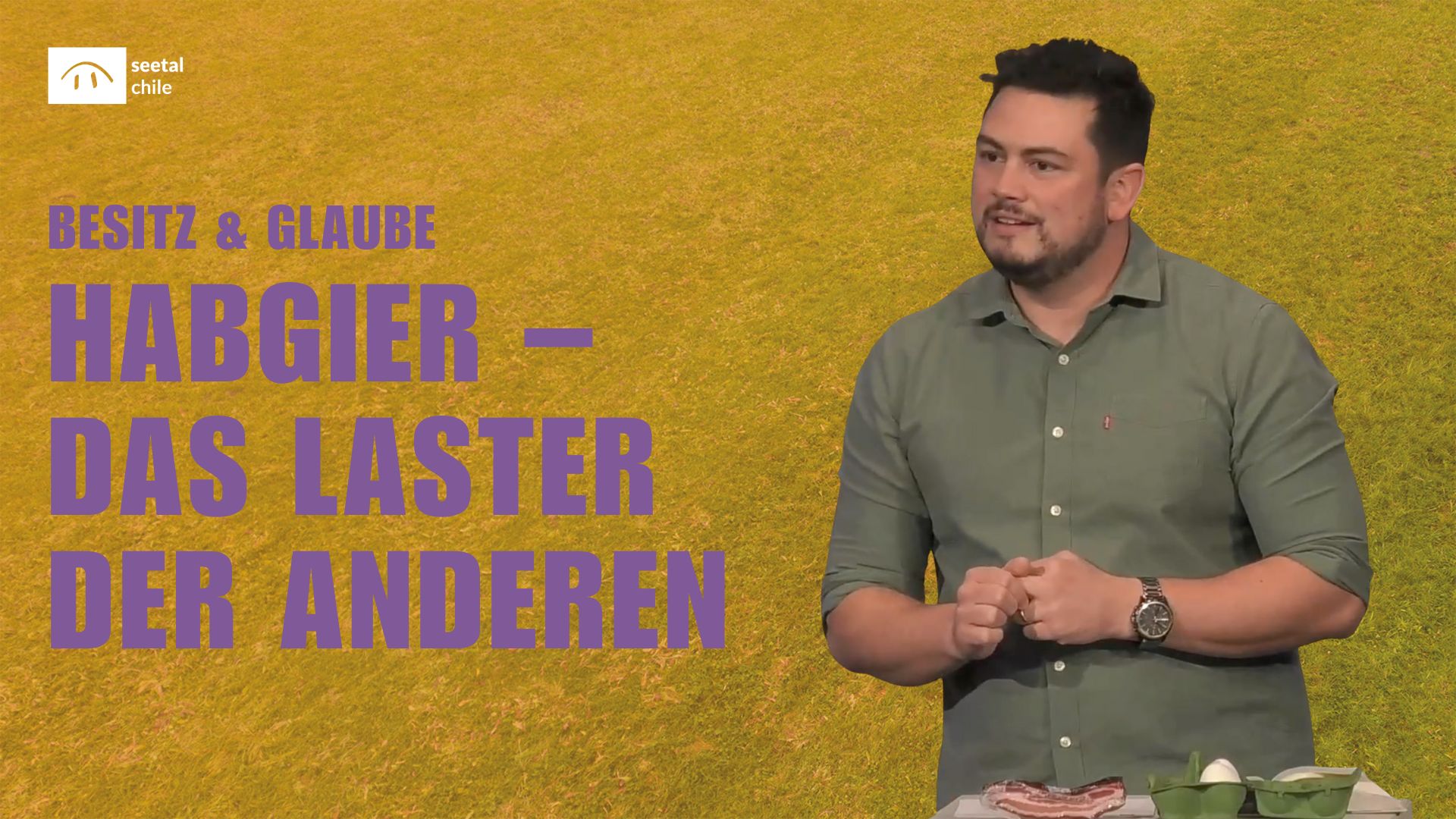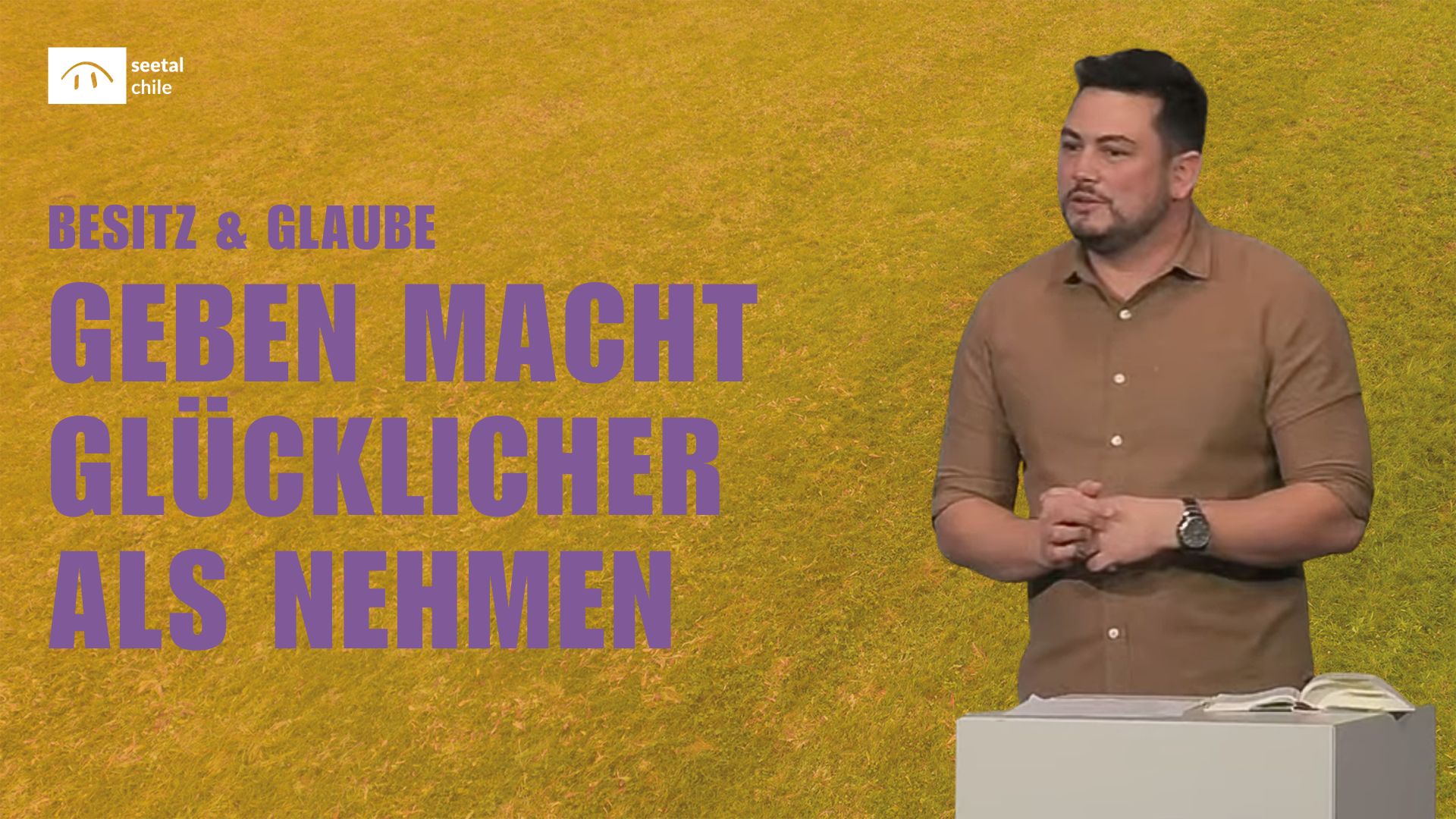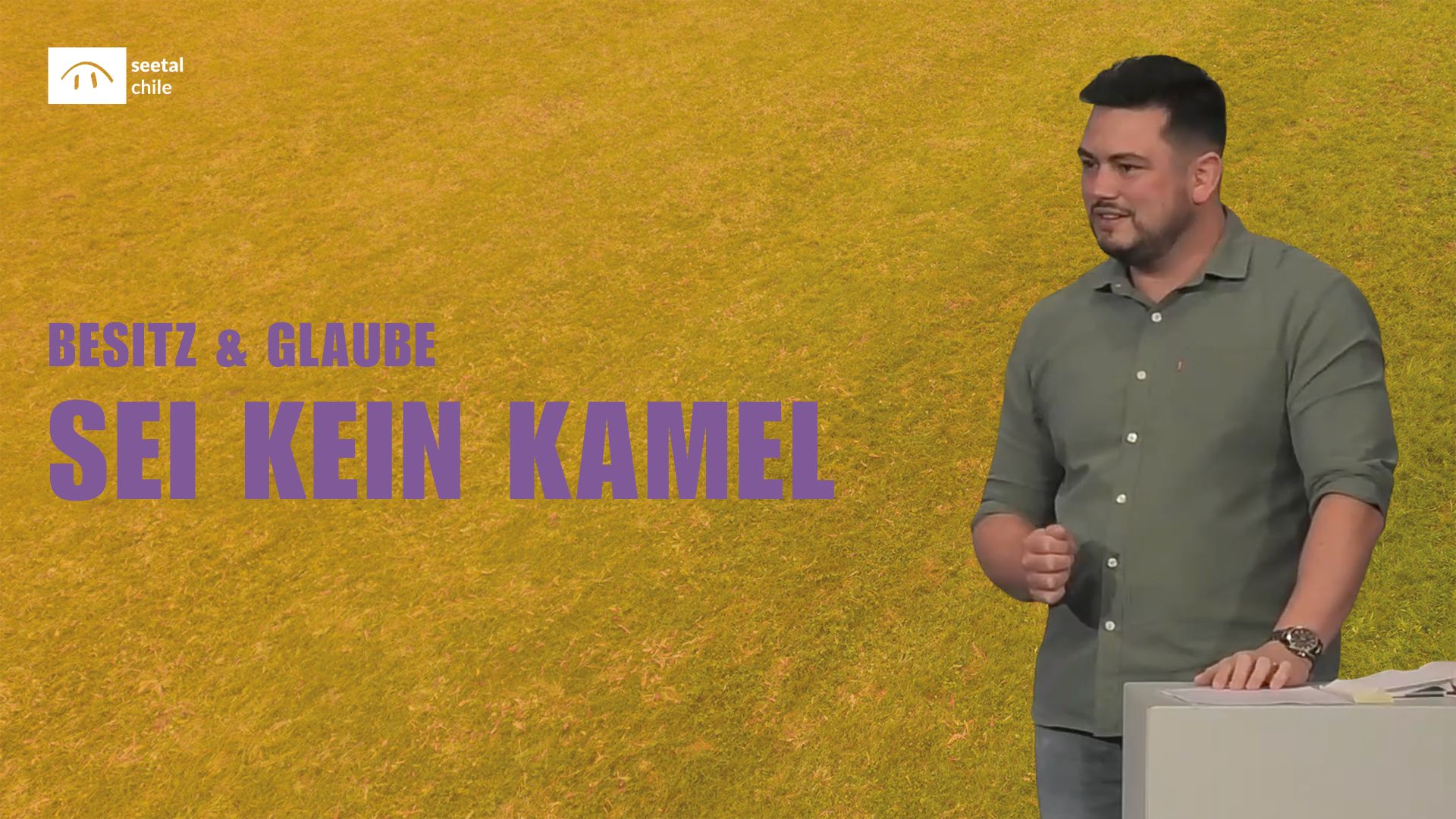Creatio – Hope and Responsibility
Series: CREATIO | Bible text: Isaiah 43:19; Colossians 1:15–19
After God created the world, He judged it to be very good. This is above all because the relationships within the individual species and beyond are perfectly harmonised. When man disregarded the only restriction in his vast living space, the world was thrown devastatingly out of balance. In Jesus Christ, the new creation begins with the goal of heaven coming to earth. For Christians, this means hope and responsibility in equal measure.
Those who gain distance see better. That’s what happened to the German astronaut Alexander Gerst. In the International Space Station, at an altitude of 400 km, he gained a completely new view of our Earth. Overwhelmed by its beauty and its obvious fragility, Gerst became an activist for a sustainable approach to creation.
Do we need this change of perspective to get a sense of how God sees the world? Let’s take a risk this year and try to focus the lens to gain a little more of the creative-divine perspective. The goal is not for us to become ideological environmental activists, but to become human beings who fulfil their very first mission to this world.
The good creation
«In the beginning God created the heavens and the earth»(Genesis 1:1 NLB). The first thing described in the Bible is God’s creative act of creation. Fascinating and rich in detail, God fills one day after another with becoming miracles. Imaginative and fantastic, creation unfolds through his word. Why does he actually create the seventeenth moth variety? Only one wing spot is different from the sixteenth! God felt like it. Such creative variations make divine fullness and his joy in play vivid.
And it was good! This line resounds like a refrain through the Song of Creation. This exclamation lets us share in God’s feelings during creation. The joyful satisfaction when something turns out really well. After his last work, the creator steps back, like a chef looking enthusiastically at her gourmet menu – and it escapes him: And behold, it is VERY good!
During the first five days, God pronounced «good» six times. At the end of the sixth day, the word is used for the seventh time with an empathic «Very» to describe God’s creation. In Hebrew culture, the number seven symbolises perfection and completeness. With this «very good» the writer communicates the perfection as well as the perfect interconnectedness of creation. It is «very good» because each individual creature is unique in function and aesthetics, and because the relationships within each genus and beyond are perfectly aligned. The relationships between the created works overflow with well-being and wealth.
This is an essential point in Hebrew thinking: It is not only the individual object that is very good, but the fine interconnectedness, the loving interplay between God and man, between the sexes, between nations and between people and creation.
A bad decision
But what is the first order? «Be fruitful and multiply, populate the earth and take possession of it. Rule over the fish of the sea, the birds of the air and all the animals of the earth.»(Genesis 1:28 NLB). In Occupy and prevail – If one takes this as a mandate for dominant rule, in practice a short path leads to the exploitation of the created world. And with divine legitimacy! Many see here the root of the ecological crisis in the history of ideas. The world today is ominously destroyed and feverishly overheated because humans are exploiting it. And this without a guilty conscience. After all, the Creator wanted it that way.
The second creation account says: «The Lord God brought man into the Garden of Eden. He was to cultivate and preserve it»(Genesis 2:15 NLB). It is about devotedly caring for and preserving God’s good creation. Good stewardship serves and protects the rest of creation. Man was created in God’s image and as such, His style of leadership, that of a good shepherd, must also be imitated.
Recently, the Tagesschau showed a stirring report about mountains of clothes in Accra, the capital of Ghana. We Europeans buy masses of new cheap clothes, often made by child labour. When we clean them out, we give them to the old clothes collection. Then there are people who earn money by shipping these clothes to Africa by the tonne. A lot of it ends up in the rubbish heap, which causes a big ecological crisis. The cows of Accra graze on these mountains of rubbish.
Where has the «very good» gone? Exploitation of people and land, misogyny, impoverishment, environmental destruction, humiliation, species extinction, etc. are present on all news channels.
Why is that? God placed man in the huge Garden of Eden. Eden is perhaps as big as Switzerland. A garden full of possibilities for development. God gave man a single commandment: «However, he commanded man: «You may eat any fruit in the garden, except the fruit from the tree of the knowledge of good and evil. If you eat the fruit from that tree, you must definitely die».»(Genesis 2:16f NLB). At the tree of the knowledge of good and evil, man was confronted with the question: Do you love God? Trust and choice are among the most fundamental requirements of an adult love relationship. To make a long story short: Man mistrusted God and made a fateful choice with far-reaching and devastating consequences. The broken fellowship between human beings and God is the determining reason for all other fractures in creation. In other words: It is impossible for humanity to violate its relationship with another created being without violating its relationship with God. When one relationship is broken, the others are also destroyed.
We also see this connection in the prophets: «Hear the word of the Lord, O Israelites! The Lord is waging a legal battle with the inhabitants of the land. He reproaches you: In your land there is no faithfulness, no compassion and no knowledge of God. You curse and lie, murder, steal and break marriage. One bloody deed follows another. That is the reason why nothing grows in your country. The whole land mourns and everything that lives in it becomes sick. Even the animals, birds and fish perish»(Hosea 4:1–3 NLB).
The land becomes a barometer of the spiritual condition of its inhabitants. It becomes clear: God created man as part of a finely woven web. He lives and weaves his being in dependence on God, fellow human beings and the environment. Where man cuts this net, everything degenerates.
The ingenious new creation
«For behold, I will create a new thing, now it grows up, do you not recognise it?»(Isaiah 43:19 LUT). The whole Bible from the incident in Eden to Revelation speaks of God’s plan to redeem the world and restore the original peace. The linchpin of this is Jesus Christ. In it God shows how he intends to redeem his lovingly conceived creation and the whole cosmos (cf. John 3:16).
Jesus, too, was a victim of human violence and self-serving power politics. When he dies on the cross at the age of 33, something spectacular happens: the interior of the earth is shaken by a violent quake. The created world senses in its core that its new creation begins on Golgotha. His resurrection body is a first taste of the new creation. The new creation is not only spiritual and other-worldly, but material and this-worldly.
This is also how Paul describes it: «Christ is the image of the invisible God, the firstborn before all creation. For in him were all things created, that are in heaven and that are on earth, […] And he is before all things, and all things consist in him. […] He is the beginning, the firstborn from the dead, that he might be first in all things. For it has pleased God […] through him all to make atonement to him […] by making peace through his blood on the cross» (Colossians 1:15–19 LUT).
Through Jesus shall all be reconciled to God. It is not uncommon for evangelicals in particular to ridicule a commitment to the whole of creation. Under no circumstances do you want to be put in the corner of an activist like Greta Thunberg. Her gospel can be presented with a few brush strokes: God loves us, but we are sinful. As a result, we are separated from God. Jesus died to pay the penalty for our sins. All we have to do is believe that Jesus» death is enough and we will go to heaven.
Such a gospel falls far short and reflects only a fraction of the good news. This thinking becomes the breeding ground for an unhealthy spirituality of passage. One no longer expects a new creation, but focuses on the Rapture as a redemptive liberation from everything physical-earthly. Those who believe this way do not care about creation. «Leave it. The faster the earth passes, the better!» If God wants to destroy the universe anyway, why should we care about the carbon footprint.
Jesus brought a much «thicker» gospel. His death and resurrection bring about much greater things. The whole creation groans and longs for redemption (Romans 8:22). The power of resurrection is not only able to reconcile human beings with God, but also to restore the relational networks of the whole of creation – namely towards the predicate very good.
Christian hope for the future is not a spiritual elimination. Quite the opposite: Christians hope and pray that God’s kingdom will come, on earth as it is in heaven. We expect God to unfold his kingdom here on earth. Just as Jesus in his new body was equally heavenly renewed and visibly marked by scars, so too is the new creation of the world to be thought of: renewed to include all that has come before. Our earth with all its material substance is the raw material for God’s eternal kingdom. The creation freed from its transience (Romans 8) finds the eternal place of its reconciled being not in heaven but on earth! God gives us an impressive glimpse of his new creation in Revelation 21: The New Jerusalem floats down to earth! The new creation takes place as a cosmic wedding in which heaven finds its place on earth.
Creatio – Hope and Responsibility is our theme for the year. People who are united with Christ and live their lives according to his standards hope full of confidence for their own new creation as well as that of the whole earth. In addition, they take on the responsibility of giving a face to the Kingdom of Heaven in this world. Humanity was given the task of serving and protecting creation. If Christians are to fulfil their role as the new humanity in Christ, then caring for other people and the environment must be high on their list of priorities.
Questions for the small groups
Read Bible text: Colossians 1:15–19; Hosea 4:1–3
- What does the Creator’s joyfully proclaimed «very good» on the sixth day refer to according to Hebrew thought (Genesis 1:31)?
- God confronted man with the question of whether he loved him by forbidding him to eat of the one fruit. Try to describe this connection!
- What does the resurrection body of Jesus say about the new creation?
- How would you describe the gospel (good news) of the Bible in a few sentences?
- Creatio – Hope and Responsibility: What is the hope of Christians? What is their responsibility?




